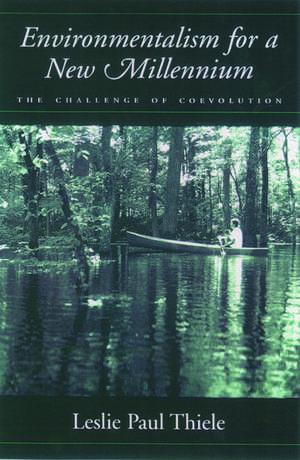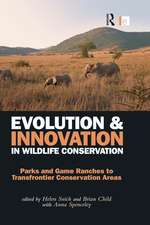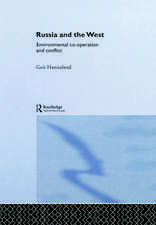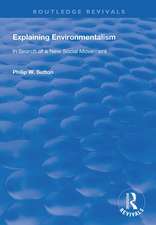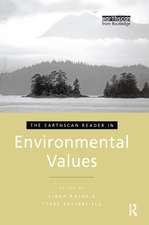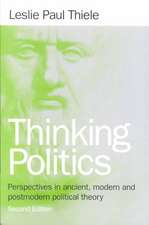Environmentalism for a New Millennium: The Challenge of Coevolution
Autor Leslie Paul Thieleen Limba Engleză Hardback – 27 mai 1999
Preț: 277.35 lei
Preț vechi: 342.06 lei
-19% Nou
Puncte Express: 416
Preț estimativ în valută:
53.09€ • 57.68$ • 44.62£
53.09€ • 57.68$ • 44.62£
Carte tipărită la comandă
Livrare economică 11-17 aprilie
Preluare comenzi: 021 569.72.76
Specificații
ISBN-13: 9780195124101
ISBN-10: 0195124103
Pagini: 336
Dimensiuni: 160 x 236 x 33 mm
Greutate: 0.59 kg
Editura: Oxford University Press
Colecția OUP USA
Locul publicării:New York, United States
ISBN-10: 0195124103
Pagini: 336
Dimensiuni: 160 x 236 x 33 mm
Greutate: 0.59 kg
Editura: Oxford University Press
Colecția OUP USA
Locul publicării:New York, United States
Recenzii
Thiele's book provides a comprehensive review of the national environmental movement. His analysis of the political, economic, social, and cultural factors underlying today's environmental problems also identifies changes needed in the next century. The opening chapter summarizes the history of the conservation movement in the US. Four waves of national environmental activity are presented, beginning with a period of conservation and responsible resource use from the mid-1800s to 1960. A second wave, identified as containment of environmental degradation by an industrial society, spans 1960s to 1980s. A period of co-optation, or mainstreaming environmentalism, is placed into the 1980s and the present decade. . . . Overall, a valuable blueprint for future environmental action. It should be widely read and is especially recommended for social, economic, and political scientists, ecologists, and those who consider themselves environmentalists. All levels.
